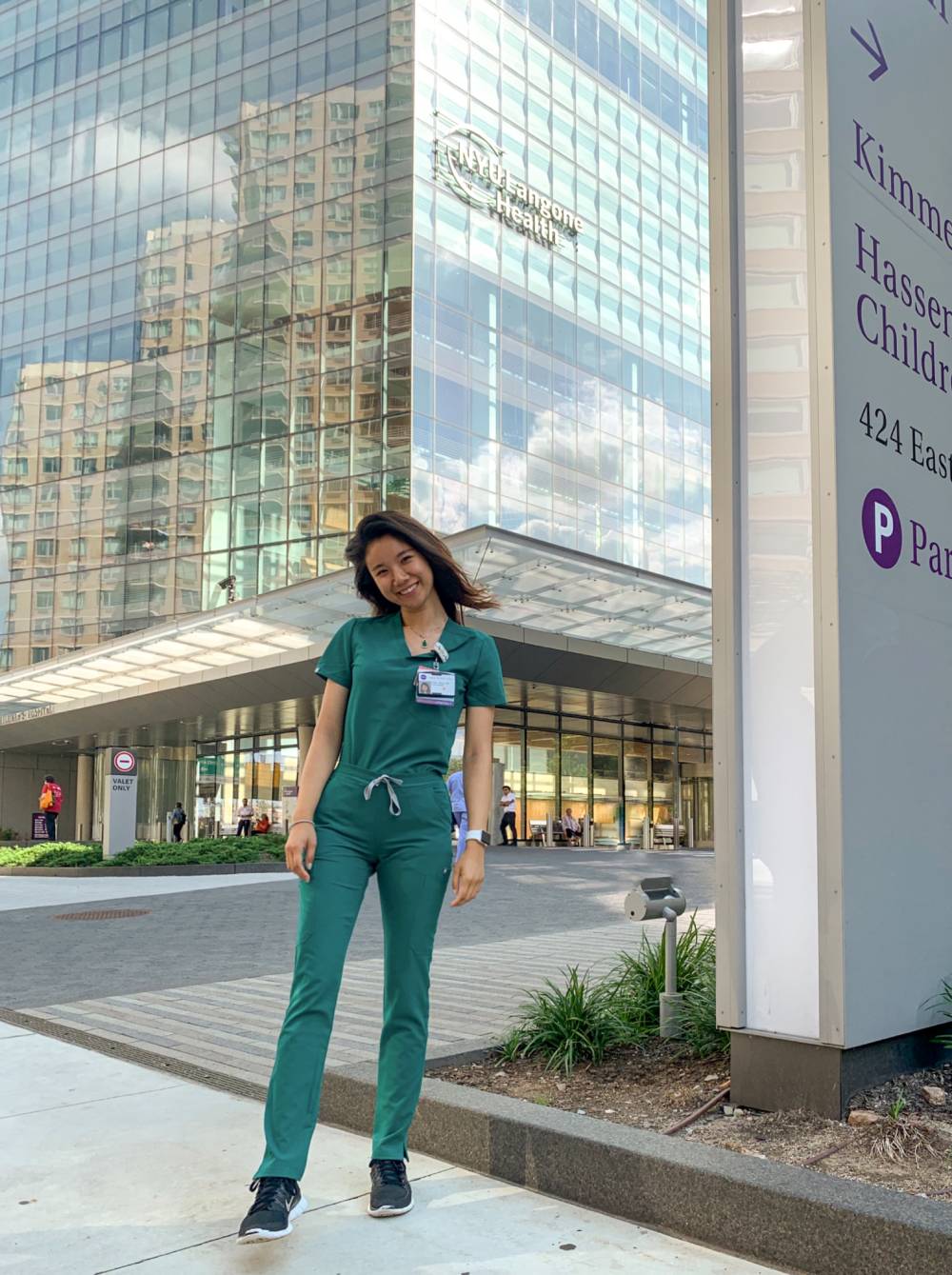Oct 3, 2025
Nurse anesthesia student’s passion and research works to advance culturally informed care

As a newly minted registered nurse in 2019, Casey Zhao was passionately working at NYU Langone Health in New York City. Then the COVID-19 pandemic burst into the world, and Zhao found herself caring for desperately ill patients.
The city’s once-crowded streets emptied overnight, and Zhao filled tall cups with shots of espresso to stay energized during her chaotic 13-hour shifts in the cardiac intensive care unit.
“There was a short honeymoon, and then BOOM COVID hit,” Zhao said. “I was seeing patients die in front of me, and there was nothing that I could do. This life, this career, is life or death.”
Working as a bedside nurse, Zhao followed physicians’ directions for patient care, but soon found herself wanting to know more about the “why” behind treatment plans. For Zhao, becoming a Certified Registered Nurse Anesthetist (CRNA) would provide the complexity and independence she sought. “I’m glad I knew I wanted to be a CRNA early on,” she said. “I’m so drawn to providing this one-to-one, in-depth care.”
Her experience at a big-city medical center during a breaking medical crisis helped Zhao decide to apply to VCU’s Doctor of Nurse Anesthesia Practice (DNAP) program.
“I really like working in a big academic center, and that’s what VCU can provide me,” she said. “I thought, let’s give Richmond a go.”
Now in her third and final year of the DNAP program, Zhao was selected to present her doctoral thesis, “Anesthesia That Understands: Precision Pain Management Beyond Stereotypes for Asian Americans,” at the 2025 American Association of Nurse Anesthesiology’s Thought Leader speaker series. With a speaker program that included chief CRNAs, professors and department chairs, Zhao was one of a few students selected to present her research.
Through her research, Zhao explored cultural narratives and genetic research related to pain management for Asian Americans and analyzed related research gaps. Born and raised in Hong Kong, Zhao’s own experience influenced her work.
"Working in the field, and doing research for my work, I realized how much evidence-based research is not based on Asian Americans," Zhao said.
A belief that pain should be endured without treatment is common in Southeast, East and South Asian cultures, she noted. Adding that these cultural norms can negatively impact patient care and lead to assumptions that Asian American patients are more tolerant of pain because they are hesitant to report it to their care teams. With her education and experience, Zhao aims to provide better patient care and educate other health care providers, and continue to do so after graduating with her DNAP in December 2025.
“When we lean into precision medicine with cultural competence, we start treating people – not stereotypes,” said Zhao. In her work, Zhao suggests pain management that takes a number of patient factors into account, including psychological, cultural and social factors.
“The way to solve the problem is to equip people in health care with more cultural awareness,” she said. “We should always be providing the best care to our patients. Regardless of where they’re from, regardless of their race and regardless of their political background.”